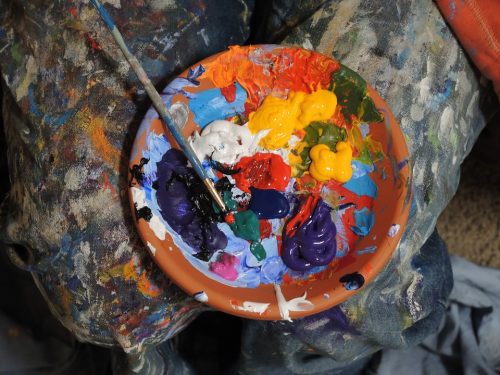Family Wellness: Mental Health And Art Therapy
September 15, 2020

Source: pixabay.com
We pursue creative hobbies like painting, writing, drawing, dancing, or acting merely because we love doing them. Instinctively, we do know that practicing creativity is healthy for us and our creative desires give us joy and fulfillment. But can we benefit mentally and emotionally from being creative? Indeed, art therapy makes us feel unburdened and happy at the end of the day, but what are other benefits that we can get from it? Can creativity in counseling help improve family wellness?
Often, people do creative activities as a form of recreation, while others do it as a livelihood. No matter which path you have taken to release your imaginations and your need to express your self-kempt emotions, it’s quite obvious that creating things is part of being human. We’ve been using art for centuries, owing from the vague marks of the hands and rough drawings of images on caves. We could say that our desire to use art is inherent. We had benefited from art over the years when we learned to make houses, cook food, draw blueprints, and even formulate medicines.
At times, however, we make things just to make it. Does this mean that sometimes art is useless? Regardless of this theory, several studies, particularly in the medical arena, have shown that almost all kinds of art forms are, in fact, beneficial for one’s physical, emotional, and mental health.
Below is a list of proven benefits that creative pursuits – dancing, drawing, writing, etc. – can provide us with. We strongly recommend that you incorporate creativity into your life as well.
Positive Impact On The Brain
Writing in the form of poetry or simply journaling can effectively help a person learn and memorize. But not if you intentionally type or write down the concepts that you want to recall – now, that won’t work. If learning efficiently is your purpose, experts suggest that you do it conventionally by using pen and paper. You can also consider doing family DIY projects for mental health.
Additionally, writing music also promotes better brain function. If Albert Einstein had not been a genius physicist, he confessed that he would have become a great musician. This is further proven to be true by a study done in 2014 about participants who had musical training, like those who practiced using a musical instrument. At the end of the study, a majority of the participants who played instruments had increased connectivity between the two cerebral hemispheres.

Source: rawpixel.com
Enhanced Mental Well-Being
Science has time and again revealed that painting, drawing, and clay work is tools that can be used for individuals that experienced trauma. An article also described art as something that aids people in expressing how they feel about their encounters that are too hard to explain verbally. It also stated that self-expression might probably even help maintain or create a positive identity.
Expressive writing, on the other hand, which involves individuals to recount a situation and discuss how it has impacted their lives, has been shown to help those who have been traumatized and have enabled them to deal with their negative emotions. Like visual expression, this form of writing gives people the ability to take unpleasant situations that are difficult to alter and incorporate them into the story of their life, which eventually creates meaning for experiences that have left deep-seated scars. Examples of these are the loss of a loved one, sexual abuse, or a medical diagnosis.
Benefits To Physical Wellness
People who have jotted down their traumatic encounters have exhibited substantial improvements in different measures of physical wellness, a decrease in doctors’ appointments, and improved immune system functions. This was supported by a trial that entailed participants going through HIV treatment, which showed that expressive writing aided the participants in improving their immune systems.
The reason for this is not very clear, but those who reported their experiences regularly presented with a boosted CD4+ lymphocyte count.
Music Therapy
This is also another immune system booster. Music impacts our brains in complicated ways, activating the limbic system, and soothing one’s responses to stress. Experts Nobel and Stuckey state that listening to your favorite music may help regain one’s immune system functions partly through the hypothalamus and the amygdala, regions of the brain that are for hormonal and mood regulation.
Benefits of Dancing
Creativity could also be a mobile pursuit, the kind of mobility that provides its range of benefits. For example, a trial that focused on breast cancer survivors revealed that dancing helped promote better shoulder stability and function and positively affected their self-image. Also, dancing is an enjoyable means of keeping yourself fit and healthy.

Source: rawpixel.com
Studies on Zumba and hip-hop programs, improving one’s blood pressure and other vital signs, have encouraged many men and women to continue dancing as a form of keeping themselves physically and mentally fit.
Ultimately, if we can maintain or improve our physical and mental states by painting, journaling, playing the piano or guitar, or just dancing our problems away, then why not welcome more creativity and art into our lives?